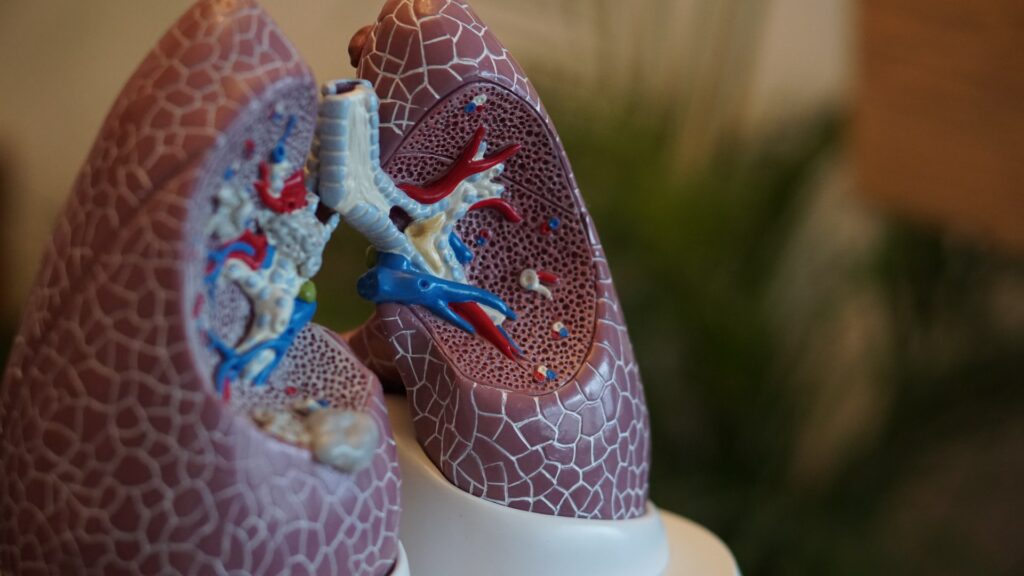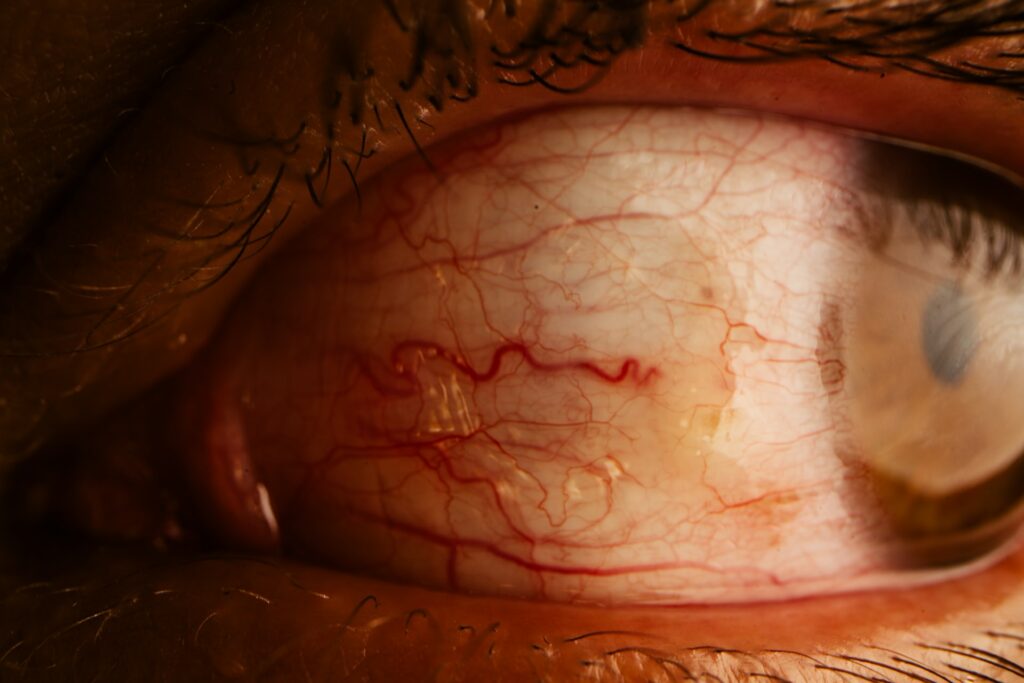Can Hay Fever Trigger Asthma?
Hay fever and Asthma are two of the most common disease that affect the respiratory tract. Asthma is a common lung condition that causes occasional breathing difficulties. Hay fever is an allergic response to allergens like pollen, causing a myriad of symptoms for example itching or a runny nose. Both conditions can cause a significant drop in quality of life. It can be especially bothersome if one triggers the other like asthma related hay fever.
Is Hay Fever Linked To Asthma?
Hay fever and asthma aren’t necessarily linked to one another, but they can affect one another. Any hay fever asthma symptoms will more than likely be made worse during summer and spring.
At least half of all people who suffer from hay fever also have asthma. This is why it’s important that a management plan is put into place with a regular inhaler, ensuring that it’s used regularly during the hay fever season.
It can’t always be avoided though, with some people experiencing hay fever causing asthma symptoms in October-November. Thunderstorms during this period cause gusts of wind to carry ryegrass pollen in the air and are more likely to elicit allergic rhinitis symptoms and in turn trigger asthma.
Ryegrass is a type of grass that was native to Europe but was eventually introduced all around the world. It’s now valued as lawn, hay, and agricultural grass and is one of the most common causes of hay fever affecting asthma.

Can Hay Fever Affect Your Breathing?
Hay fever will typically display multiple symptoms at once, which can involve skin rash, coughing, sneezing and itchy, watery eyes. Anyone who suffers from hay fever will more than likely experience two of these symptoms when exposed.
In terms of breathing, hay fever won’t hinder the effectiveness of your lungs like asthma would, but it could affect your ability to breathe in and out through your nose.
If you already have asthma symptoms such as wheezing and breathlessness, they will more than likely become worse during hay fever season. Some people will only have asthma symptoms during hay fever season and are fine for the rest of the year.
When hay fever season is approaching, it’s important to have a hay fever asthma treatment plan in place to try and circumvent any increase in symptoms you will come up against.
Can Hay Fever Cause Asthma?
Yes, hay fever causing asthma can happen. The same substances that can trigger hay fever, for instance pollen, dust mites and pet dander, may also cause asthma signs and symptoms. Skin and food allergies can also cause asthma symptoms. This is called allergy-induced asthma or allergic asthma.
Hay fever asthma symptoms are generally the same as classic asthma symptoms:
- Feeling short of breath
- Hay fever asthma cough frequently, especially at night
- Wheezing
- Feeling of chest tightness
Allergy symptoms can also happen alongside any hay fever asthma symptoms, including:
- Stuffy nose
- Itchy or watery eyes
- Sneezing
- A rash and/or hives
In order to find out if your symptoms are caused by hay fever affecting asthma, there are certain tests you can take to diagnose your asthma. The tests are used to make sure it’s asthma causing the symptoms and not some other medical condition. Tests used to diagnose asthma and allergic asthma can include:
- Spirometry
- This is a breathing test that involves taking a deep breath in and then exhaling into a tube. The tube is connected to a computer that analyses how well the air moves when breathing in and out.
- Exhaled nitric oxide test
- This measures the amount of nitric oxide in your breathe when exhaled.
- Bronchoprovocation test
- Similar to allergy tests used on the skin, you’ll breathe in possible allergens to see what’s triggering your asthma.

Can Hay Fever Cause Asthma Symptoms?
As said above, triggers that cause hay fever symptoms to appear can further irritate asthma symptoms. If diagnosis has been confirmed and hay fever is triggering your asthma symptoms, it’s important to start treatment quickly. Getting on top of symptoms is important to reduce the risk of a potentially life-threatening asthma attack.
You can reduce the risk of asthma related hay fever by following these three steps:
- Carry a reliever inhaler with you everyday
- Reliever inhalers quickly ease symptoms on the spot by relaxing the muscles located in the airways.
- Continually take a preventer inhaler as described
- A preventer inhaler is normally prescribed for long-term control of asthma symptoms. This will help stop any hay fever asthma cough or wheezing before they can even start. Persistently using a preventer inhaler reduces the risk of experiencing asthma related hay fever symptoms.
- Prevent hay fever symptoms
- There are a ton of different options available for hay fever prevention, including anti-histamine pills and sprays.
Difference Between Asthma And Hay Fever
Medically the differences between hay fever and asthma are quite large, with hay fever being an autoimmune disease and asthma being a chronic condition affecting the airways in the lungs.
Commonly known as allergic rhinitis, hay fever develops when the body’s immune system recognizes and overreacts to something in the environment that would otherwise cause no problems.
Asthma is a lung condition that affects people of all ages. It will often start in childhood, although it can also develop for the first time during adulthood. It will often cause breathing difficulties if symptoms aren’t kept under control.
If you’re suffering from hay fever asthma symptoms you may notice that symptoms are similar to regular asthma but are more intense and exaggerated.

What Are The Symptoms Of Hay Fever?
There are two different types of hay fever (allergic rhinitis) called seasonal and perennial. Seasonal symptoms occur during spring, summer, and early fall and are usually caused by airborne pollen. Perennial symptoms occur year round and are caused by sensitivity to dust mites, pet hair, cockroaches or mould.
When the body comes into contact with allergens the immune system will react by displaying the following symptoms:
- Stuffy nose due to inflammation or congestion
- Runny nose or post nasal drainage
- Itching, usually in the nose, mouth, eyes, or throat
- Red and watery eyes
- Puffy, swollen eyelids
- Sneezing
- Hay fever asthma cough
As well as getting treatment in the form of medication, changes to your home and behaviour can further help manage symptoms. Some of these changes include:
- Keeping windows closed during high pollen periods
- Wearing glasses or sunglasses when outside to keep pollen out of the eyes
- Wash your hands after being outside or after touching an animal
Inhaler For Hay Fever
There currently isn’t any inhaler for hay fever symptoms as hay fever doesn’t affect the effectiveness of the lungs. It is however, more than likely a culprit for triggering the symptoms of asthma is asthmatic people.
Regularly using a regular inhaler and taking the correct hay fever asthma treatment should help manage symptoms as we enter hay fever season. If you find that you’re using your reliever inhaler three or more times a week, book an urgent appointment with your GP.
If you also think that you don’t have hay fever, but instead your asthma is getting worse, you should still see your GP urgently. Under the correct management plan, asthma symptoms can be easily controlled.












